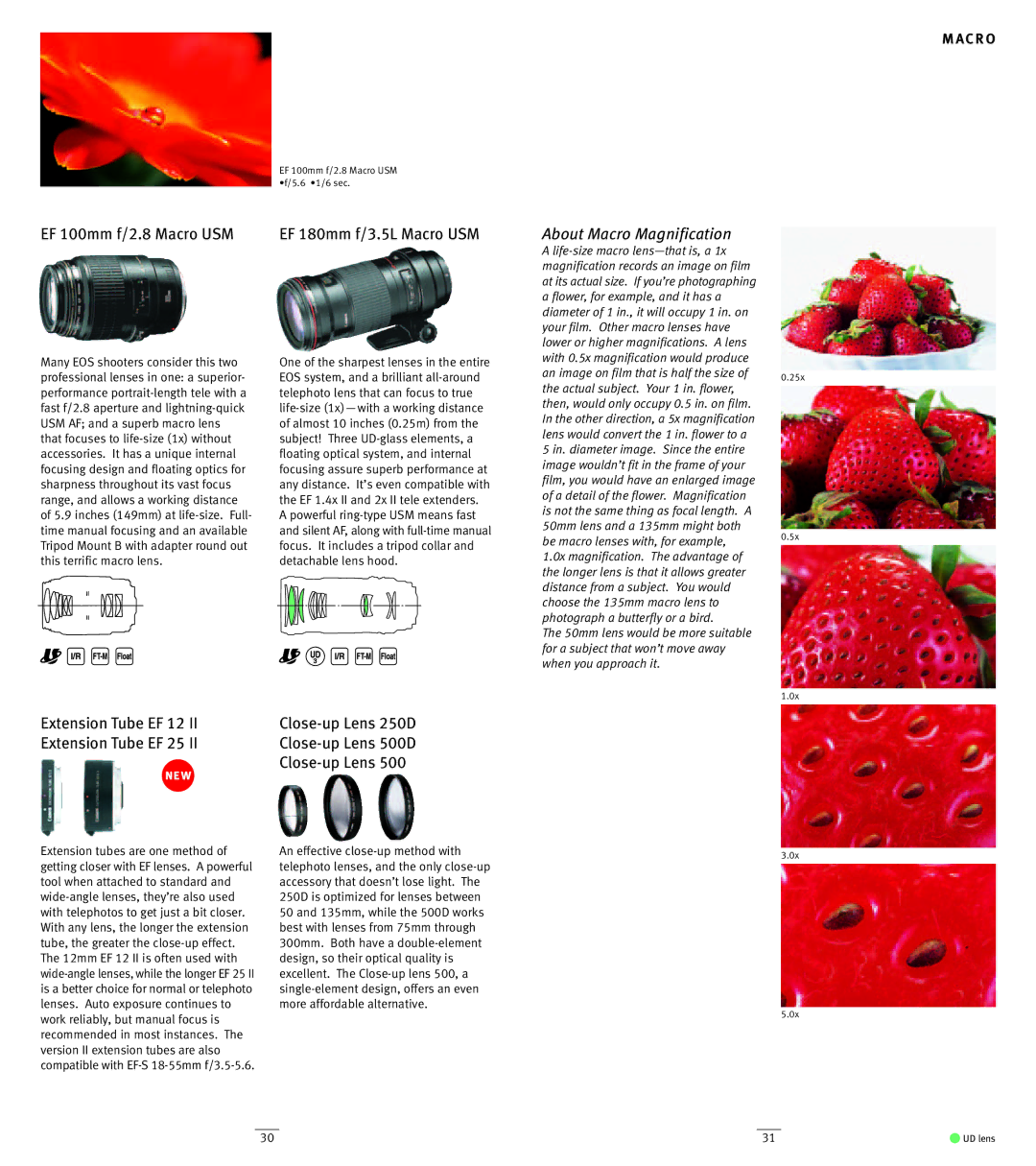
EF 100mm f/2.8 Macro USM
Many EOS shooters consider this two professional lenses in one: a superior- performance
EF 100mm f/2.8 Macro USM •f/5.6 •1/6 sec.
EF 180mm f/3.5L Macro USM
One of the sharpest lenses in the entire EOS system, and a brilliant
M AC R O
About Macro Magnification |
| |
A |
| |
magnification records an image on film |
| |
at its actual size. If you’re photographing |
| |
a flower, for example, and it has a |
| |
diameter of 1 in., it will occupy 1 in. on |
| |
your film. Other macro lenses have |
| |
lower or higher magnifications. A lens |
| |
with 0.5x magnification would produce |
| |
an image on film that is half the size of | 0.25x | |
the actual subject. Your 1 in. flower, | ||
| ||
then, would only occupy 0.5 in. on film. |
| |
In the other direction, a 5x magnification |
| |
lens would convert the 1 in. flower to a |
| |
5 in. diameter image. Since the entire |
| |
image wouldn’t fit in the frame of your |
| |
film, you would have an enlarged image |
| |
of a detail of the flower. Magnification |
| |
is not the same thing as focal length. A |
| |
50mm lens and a 135mm might both | 0.5x | |
be macro lenses with, for example, | ||
| ||
1.0x magnification. The advantage of |
| |
the longer lens is that it allows greater |
| |
distance from a subject. You would |
| |
choose the 135mm macro lens to |
| |
photograph a butterfly or a bird. |
| |
The 50mm lens would be more suitable |
| |
for a subject that won’t move away |
| |
when you approach it. |
| |
| 1.0x |
Extension Tube EF 12 II | |
Extension Tube EF 25 II | |
new |
|
|
Extension tubes are one method of getting closer with EF lenses. A powerful tool when attached to standard and
An effective
3.0x
5.0x
30 |
| 31 | ● UD lens |
